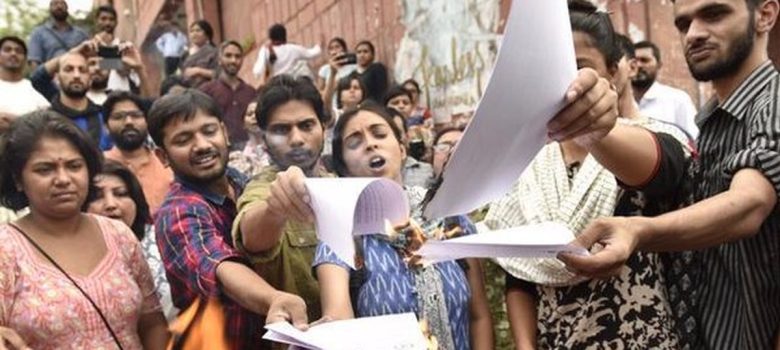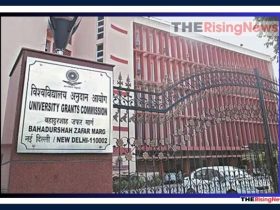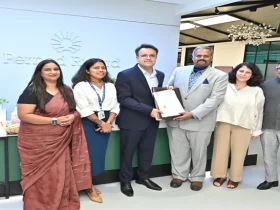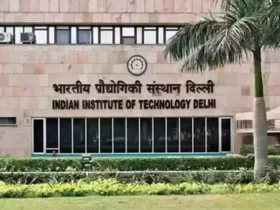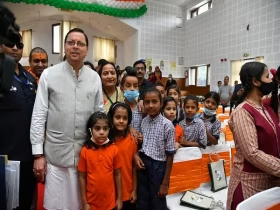NEW DELHI, August 26, 2024 – The ongoing hunger strike led by the Jawaharlal Nehru University Students Union (JNUSU) has reached its 15th day, with students steadfast in their demand for an increase in the merit-cum-means (MCM) scholarship. The JNU administration has formally approached the University Grants Commission (UGC) with a request to raise the scholarship from Rs 2,000 to Rs 5,000 per month, highlighting the urgent need to support students from economically disadvantaged backgrounds.
JNU Students Hunger Strike
The hunger strike at JNU began as a protest against the inadequacy of the current MCM scholarship, which was initially established to assist students whose family income is less than Rs 2.5 lakh per annum. However, with the rising cost of living, including significant increases in mess bills, students argue that the Rs 2,000 monthly scholarship is no longer sufficient to cover basic expenses.
JNU Administration Appeals to UGC for Scholarship Increase
In a letter dated August 21, the JNU administration detailed the financial constraints faced by the university, currently allocating nearly Rs 4 crore annually for MCM scholarships. The administration has requested an additional Rs 6 crore from the UGC to raise the scholarship amount, emphasizing that the university’s internal resources are stretched to their limit.
- Key Request: An additional Rs 6 crore to increase the MCM scholarship.
- Current Expenditure: Rs 4 crore annually for MCM scholarships.
- Primary Need: To support students from economically weaker sections.
The letter states, “We appeal to you to kindly consider the above request for an additional allocation of Rs 6 crore under the budget head ‘Recurring (Non-Salary) grant’ to the university to meet this demand of the students.” This request marks a significant step by the JNU administration in addressing the financial concerns raised by the student body.
JNU Students Hunger Strike: Protests and Student Reactions
Despite the administration’s appeal to the UGC, JNUSU has declared this move only a “partial victory” and remains committed to continuing their hunger strike until the scholarship increase is fully implemented. On August 23, JNU students attempted to march to the Ministry of Education to press their demands further. The march was met with heavy police presence, preventing the students from leaving the campus.
Key Student Concerns:
- Insufficient Financial Support: The current Rs 2,000 MCM scholarship is inadequate to cover rising living costs.
- Ongoing Protests: The hunger strike will continue until the scholarship increase is realized.
- Impact on Education: Without the scholarship increase, many students from lower-income families may struggle to continue their studies.
JNU’s Financial Aid Request
The JNU administration’s appeal to the UGC has broader implications for student financial aid policies in India. If granted, this increase could set a precedent for other universities facing similar financial constraints. The situation at JNU underscores the need for systemic reforms in the higher education sector to ensure that financial aid programs are sustainable and accessible to all students, regardless of their economic background.
JNU Students Hunger Strike Awaiting UGC’s Decision
As the hunger strike continues, the focus now shifts to the UGC’s response to JNU’s appeal. The outcome will not only affect the students at JNU but could also influence financial aid policies at other universities across India. The resolution of this issue is critical for ensuring that higher education remains accessible to students from all economic backgrounds.

